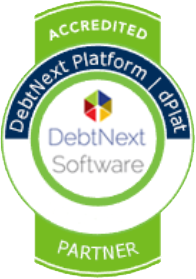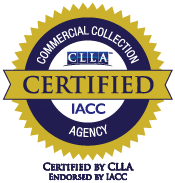The right contact center service should act as an extension of your business. A well-structured contact center improves customer engagement, streamlines support operations, and optimizes communication across multiple channels. Selecting the right service keeps customer interactions seamless while supporting business growth and adapting to market changes.
With many options available, knowing what to consider can help narrow the choices. The right contact center should align with your business objectives, deliver high-quality customer support, and provide the flexibility to scale as your needs evolve.
Your Business Needs
Before exploring contact center providers, defining your service requirements is essential. Customer support needs vary widely. You may need to handle high call volumes, perform technical troubleshooting, schedule appointments, and more.
Identifying these priorities can help you choose the contact center with the expertise to deliver the right level of service.
You should also consider the communication preferences of your customers. Some audiences prefer traditional phone support, while others engage more effectively through chat, email, or social media.
A provider that offers integrated, omnichannel support creates a smoother, more efficient experience, allowing your customers to interact in the way that gets them the help they need.
Contact Center Location
Location plays a significant role in cost, customer experience, and service quality. Different models offer different advantages, as you can see here:
- Domestic Contact Centers: Provide strong cultural alignment and native language fluency, leading to a more personalized and natural customer experience.
- Nearshore Contact Centers: Located in neighboring countries, these balance affordability and high-quality service, with linguistic and cultural similarities that make communication easier.
- Offshore Contact Centers: A cost-effective option with scalable resources that support large-scale customer service operations.
- Work-at-Home Contact Centers: Offer maximum flexibility and scalability, making them well-suited for businesses with fluctuating customer service demands.
Each option has its advantages, so selecting the right model depends on customer expectations, budget, and business goals.
Scalability and Adaptability
Customer service needs fluctuate based on seasonal demand, business growth, and market expansion. A contact center should have the ability to scale operations efficiently, ensuring consistent service quality as demand shifts.
A provider that adjusts staffing levels based on need prevents customer service disruptions while keeping costs under control. Without this flexibility, businesses risk long wait times, overwhelmed support teams, and declining customer satisfaction.
Technology and Integration Capabilities
Technology enhances efficiency, customer interactions, and support operations. The best contact centers incorporate AI-powered automation, cloud-based platforms, and seamless CRM integrations to improve service delivery.
An effective provider integrates with existing business systems, ensuring that customer data is readily accessible to agents. Real-time access to customer information helps resolve issues faster and reduces the need for repeated explanations.
When systems work together, customers receive a more personalized and seamless experience.
Contact centers using advanced technologies such as AI-driven chatbots, predictive analytics, and automated workflows reduce handling times and improve resolution rates. These innovations improve efficiency, allowing customer service teams to focus on complex inquiries that require a human touch.
Performance Metrics and Quality Assurance
Evaluating a provider’s performance metrics and quality assurance standards can indicate how effectively they manage customer interactions. Key performance indicators include:
- First Call Resolution (FCR): A higher rate suggests that customer concerns are being handled effectively on the first attempt.
- Average Handling Time (AHT): Balances efficiency with service quality to provide customers with timely assistance.
- Customer Satisfaction Scores (CSAT): Measures direct feedback to gauge overall service effectiveness.
- Response and Hold Times: Indicates how quickly customers receive support without long wait times.
Ask to see these metrics when choosing a contact center service to help you identify the partner that will fit your business needs and address your customer needs most effectively.
Pricing Models and What’s Included
Cost plays a role in the decision-making process, but transparency in pricing is just as important. Some providers charge extra for training, implementation, reporting, and analytics, while others offer all-inclusive pricing.
Understanding what is included in the pricing model helps businesses avoid unexpected expenses. When evaluating a provider, consider:
- Are agent training and onboarding covered?
- What reporting and analytics tools come with the service?
- Are AI and automation features included?
The right contact center can provide flexible, cost-effective pricing options that deliver value without hidden fees. The goal is to find a balance between affordability and service quality, ensuring customers receive excellent support without unnecessary costs.
Security and Compliance
Businesses that handle sensitive customer data must ensure their contact center meets industry compliance standards. Healthcare, finance, and retail industries have specific regulatory requirements, including HIPAA, PCI DSS, and data protection laws.
A strong provider prioritizes:
- Cloud-based security solutions to safeguard customer information.
- Data encryption protocols to prevent unauthorized access.
- Disaster recovery and redundancy plans to maintain business continuity.
A provider that upholds strict security measures can help protect businesses and customers from data breaches, compliance violations, and reputational damage.
Industry Experience and Reputation
A provider’s track record speaks volumes about its reliability. Businesses should research case studies, client testimonials, and industry experience to assess a provider’s expertise.
At Radius, we work with companies across multiple industries, delivering tailored customer engagement solutions. With expertise in scalable contact center services, AI-driven technology, and industry-specific compliance, we provide businesses with a trusted partner in customer service and operational efficiency.
Choose Radius GS as Your Contact Center Partner
Choosing the right contact center is an investment in customer experience, operational success, and business growth. The right partner offers scalable solutions, cutting-edge technology, seamless integration, and a commitment to security and compliance.
Radius Global Solutions provides customized contact center services designed to help businesses improve efficiency, elevate customer service, and scale effectively. With expert agents, advanced technology, and industry experience, we deliver solutions that support business success now and in the future. Contact us to partner up today!



